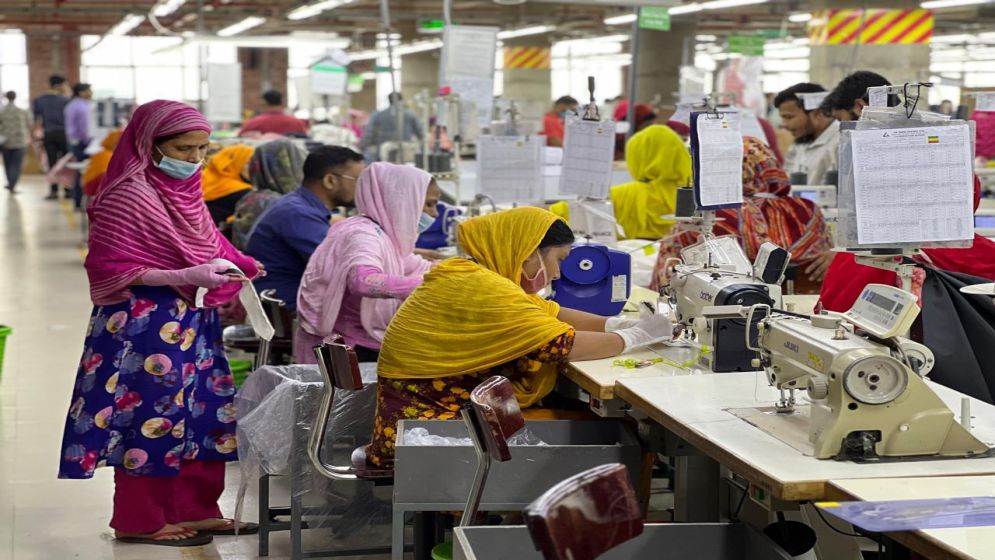RMG Workers' Protest: 30 garment factories shut down as Home Ministry deploys joint forces to oversee situation

In response to escalating worker protests in the key industrial zones of Savar, Ashulia and Gazipur, the Bangladesh Army, police and industrial police are set to launch a joint operation from Monday night.
The move aims to safeguard the ready-made garment (RMG) industries, a vital sector of the country's economy.
The decision was announced by BGMEA President Khandaker Rafiqul Islam following a high-level meeting at the Secretariat.
Home Affairs Adviser Lieutenant General (retd) M Jahangir Alam Chowdhury has issued the directive,underlining the seriousness of the situation.
The protests, led by job-seeking workers, have disrupted operations in the area in the last couple of days. Demonstrators on Monday blocked major roads, demanding equal employment opportunities for men and women in RMG factories, amongst other demands.
The situation escalated with reports of brick and stone throwing at factories, forcing at least 30 factories to declare a holiday.
Despite the combined efforts of industrial police and army personnel, protesters continue to block the Nabinagar-Chandra road near the Dhaka EPZ.
While the Baipail-Abdullahpur road has been cleared, the ongoing blockade is causing disruptions, forcing at least 30 factories, including major players like Hamim Group and Sharmin Group, to suspend operations.
Superintendent of industrial police-1, Md Sarwar Alam, explained that the protests are driven by demands for employment and equal opportunities for men and women in garment factories.
Fresh bout of RMG protests
This fresh wave of labor protests has swept through Bangladesh's ready-made garment (RMG) sector, leaving factory owners worried about the safety of their industrial units.
In recent days, at least 50 RMG factories in the Ashulia industrial hub have been forced to shut down as workers took to the streets, demanding better rights and benefits.
While insiders acknowledge that workers' monthly wages have been paid, they suspect some are exploiting the current political climate to incite further unrest.
The fall of the Awami League government on August 5 has led to a perceived weakening of law and order, creating an opportunity for "outside groups" to capitalize on the situation.
The latest protests saw workers from several factories, including Gildan Bangladesh and Peral Bangladesh, blocking key roads in Ashulia, demanding an end to layoffs, attendance bonuses, and increased employment opportunities.
Authorities at over 30 factories have responded by suspending operations indefinitely.
The resurgence of labor unrest in the RMG sector highlights the ongoing challenges facing Bangladesh's garment industry, particularly in the wake of recent political upheaval.
Factory owners are grappling with not only the immediate disruptions caused by the protests but also the broader implications for the safety and stability of their operations.
—-

